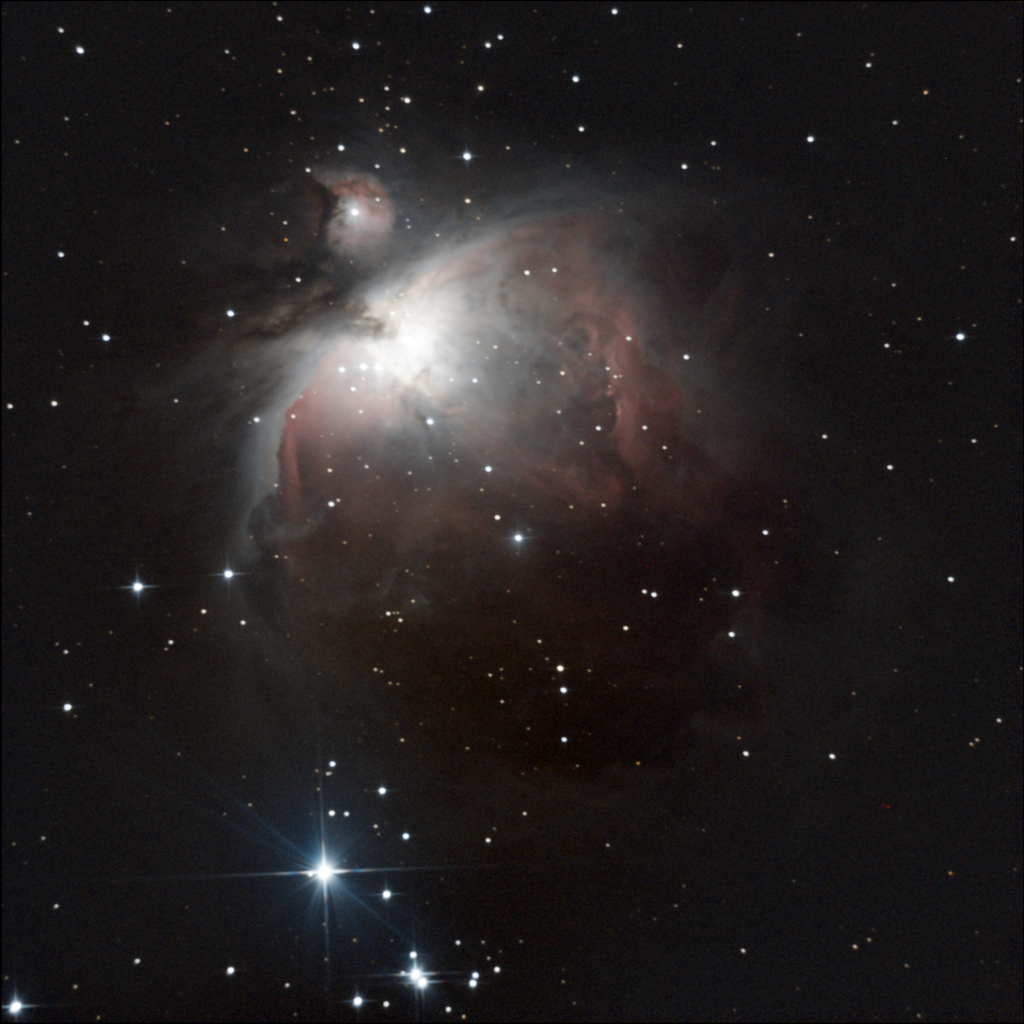The Crescent Nebula
The milky way is slowly coming back into our night skies and this was a good moment for me to test the ZWO duoband filter.
This nebula is the result of a Wolf-Rayet star blowing stellar winds 5.000 light years away from us.
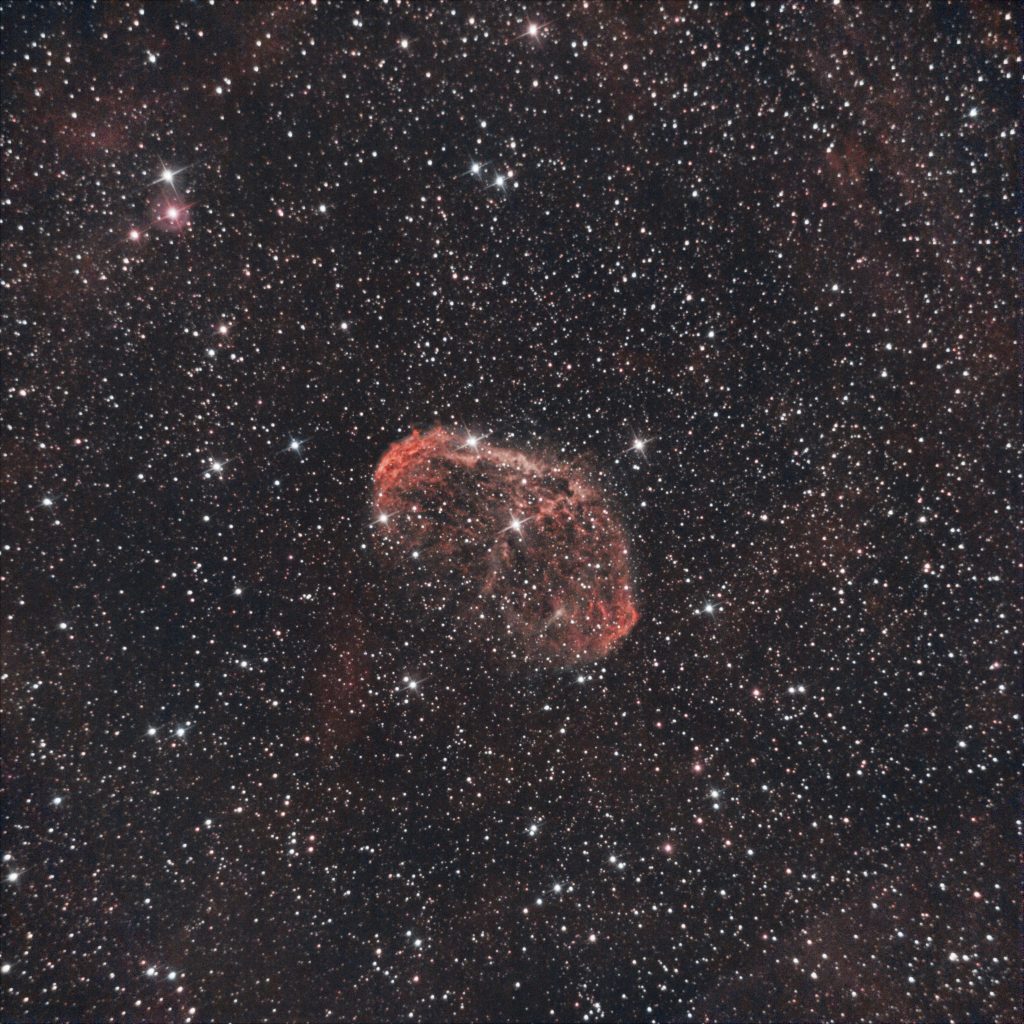
The milky way is slowly coming back into our night skies and this was a good moment for me to test the ZWO duoband filter.
This nebula is the result of a Wolf-Rayet star blowing stellar winds 5.000 light years away from us.

There are many wonderful objects in Ursa Major and The Little Pinwheel Galaxy is one of them. I only managed to get 3 hours of data and had to battle some high clouds but I’m happy with the result.
Distance to earth: 40 million light-years.
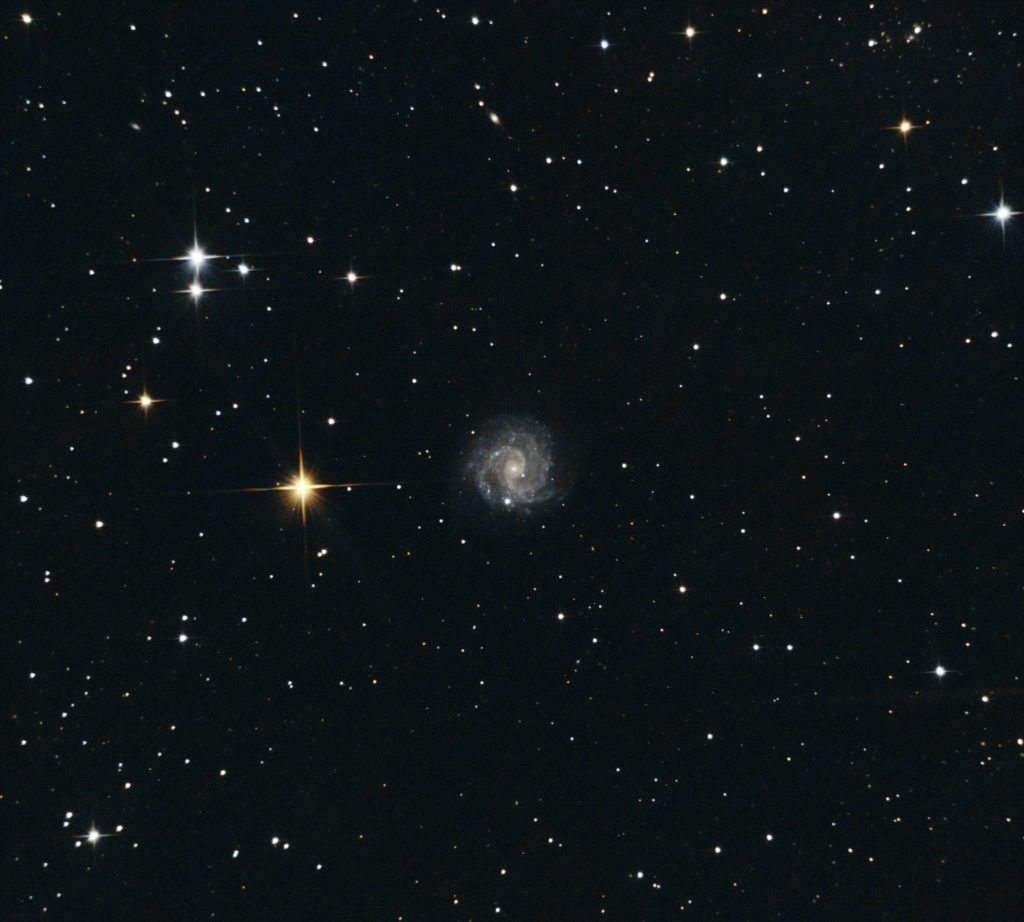
Inspired by Halton Arp’s Atlas of Peculiar Galaxies I decided to have a long look at NGC 4490 also known as the Cocoon Galaxy. This used to be a spiral galaxy but clashed with the smaller companion (NGC 4485) and they will meet again at some point in an epic dance of the stars.
All this is happening at 25 million light years away from us.
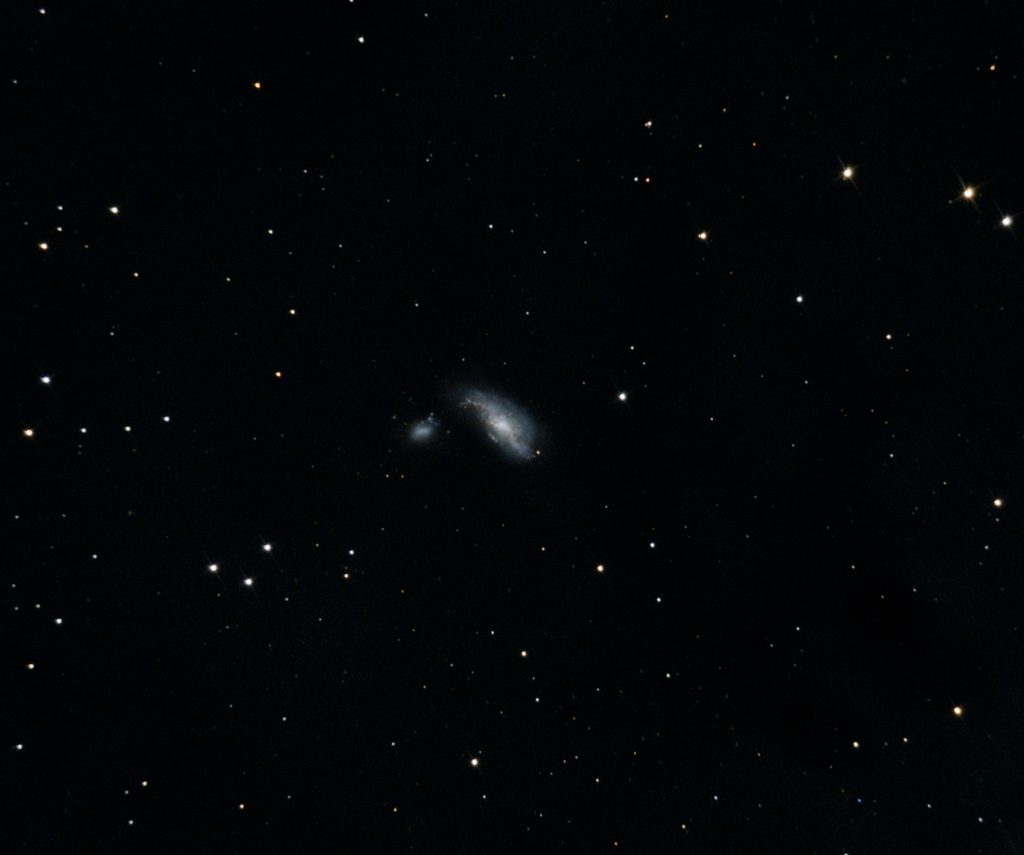
Probably my favourite galaxy. Distance to earth is 27 million light years and shape and bright yellow core explain where it gets its name from.
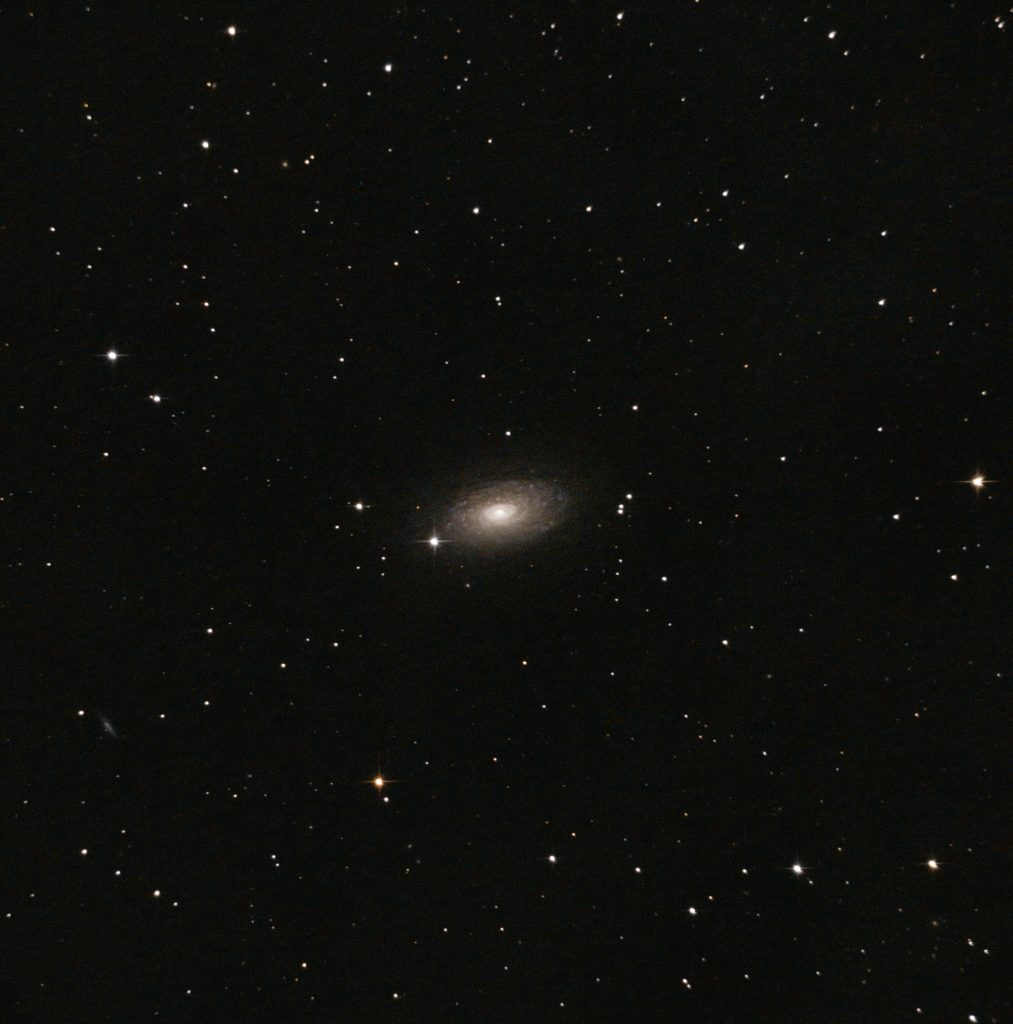
We are very lucky to be able to witness what is happening here. Bode’s Galaxy on the left is gravitationally affecting the Cigar Galaxy on the right, causing starbust.
Distance to earth: 11.5 million light years.
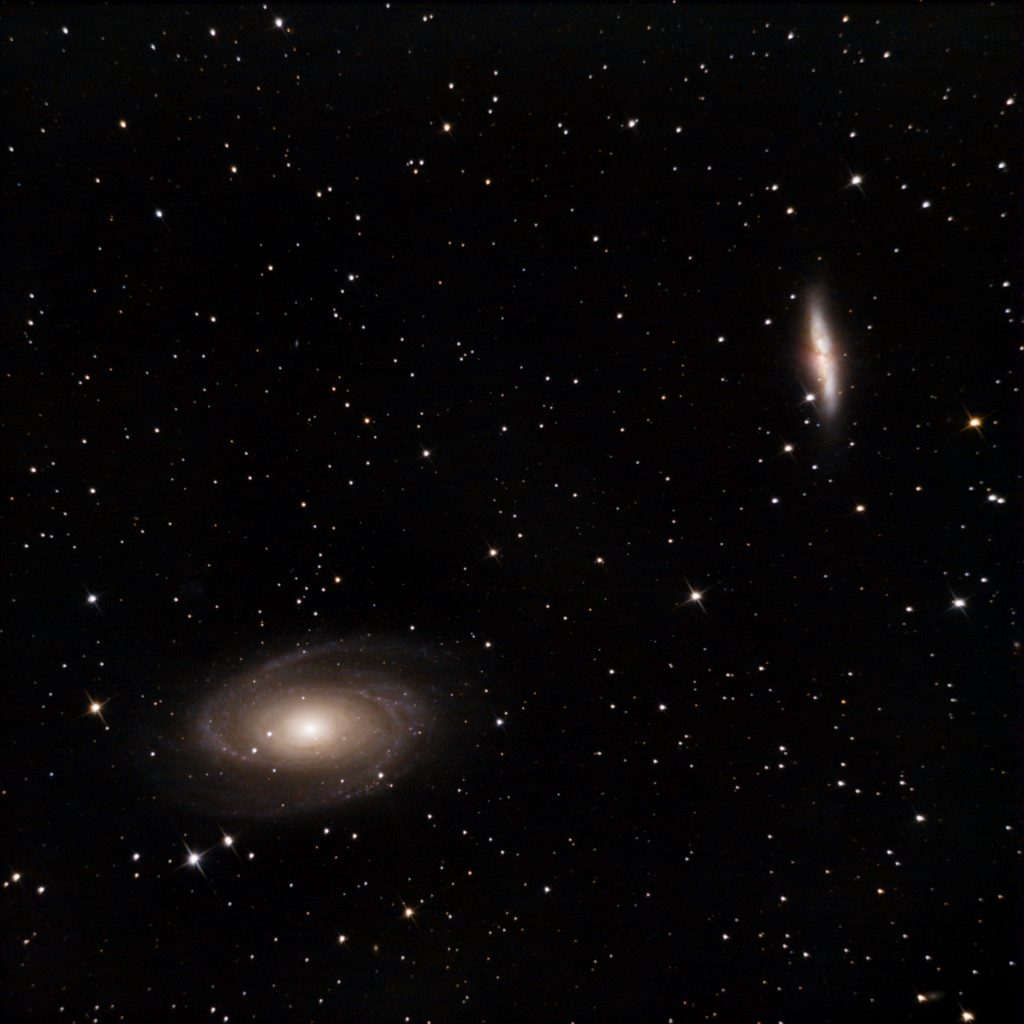
This was a tricky capture. Over 4 hours of data but some issues in post processing that had to be fixed.
Messier 106 steals the show on this picture but it’s not the only visible galaxy. On the lower right you can see NGC 4217 and other smaller galaxies scattered around.
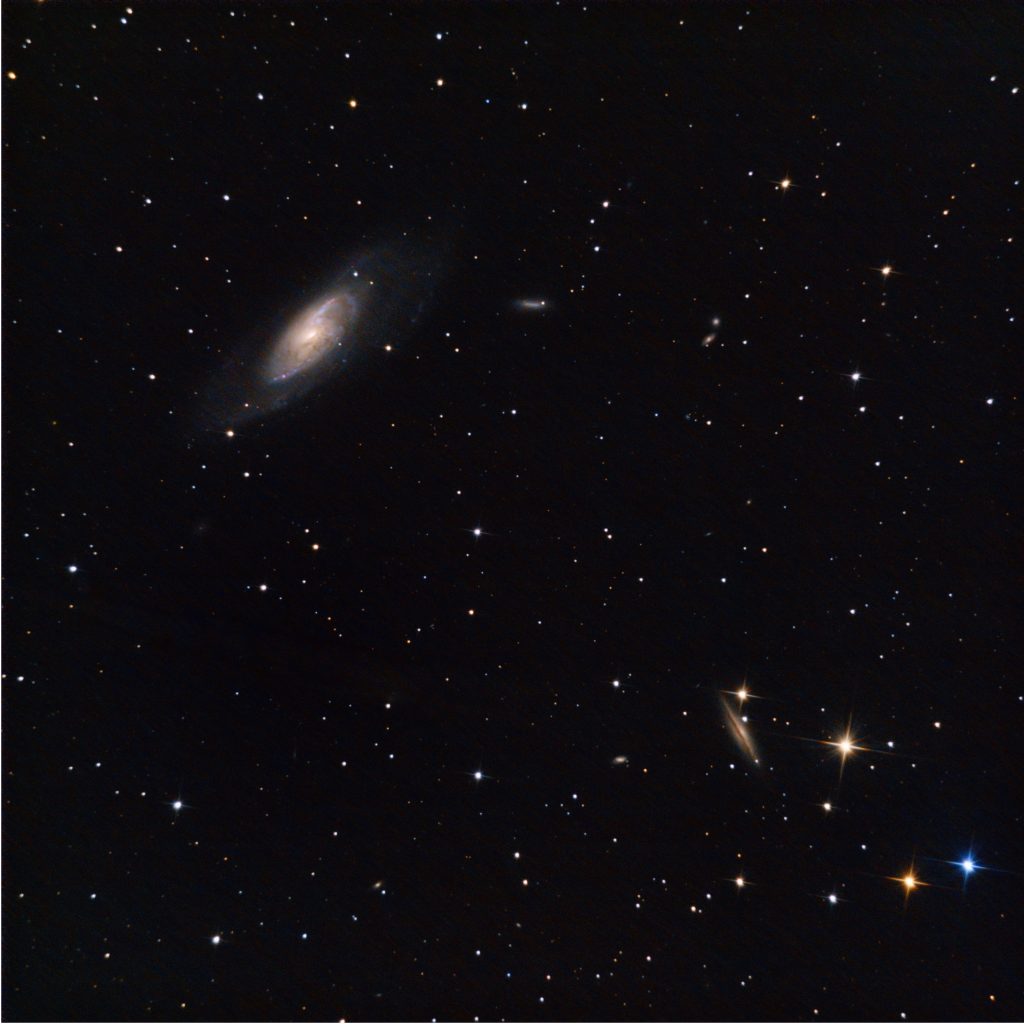
There is no better way to show the colossal scale of the universe than imaging interacting galaxies. These enormous galaxies are light years separated but still gravitationally impact each other in different ways.
The most impressive one is the Whirlpool Galaxy where we can see in detail how M51 and NGC 5195 are in full collision.
The Whale galaxy & NGC 4656
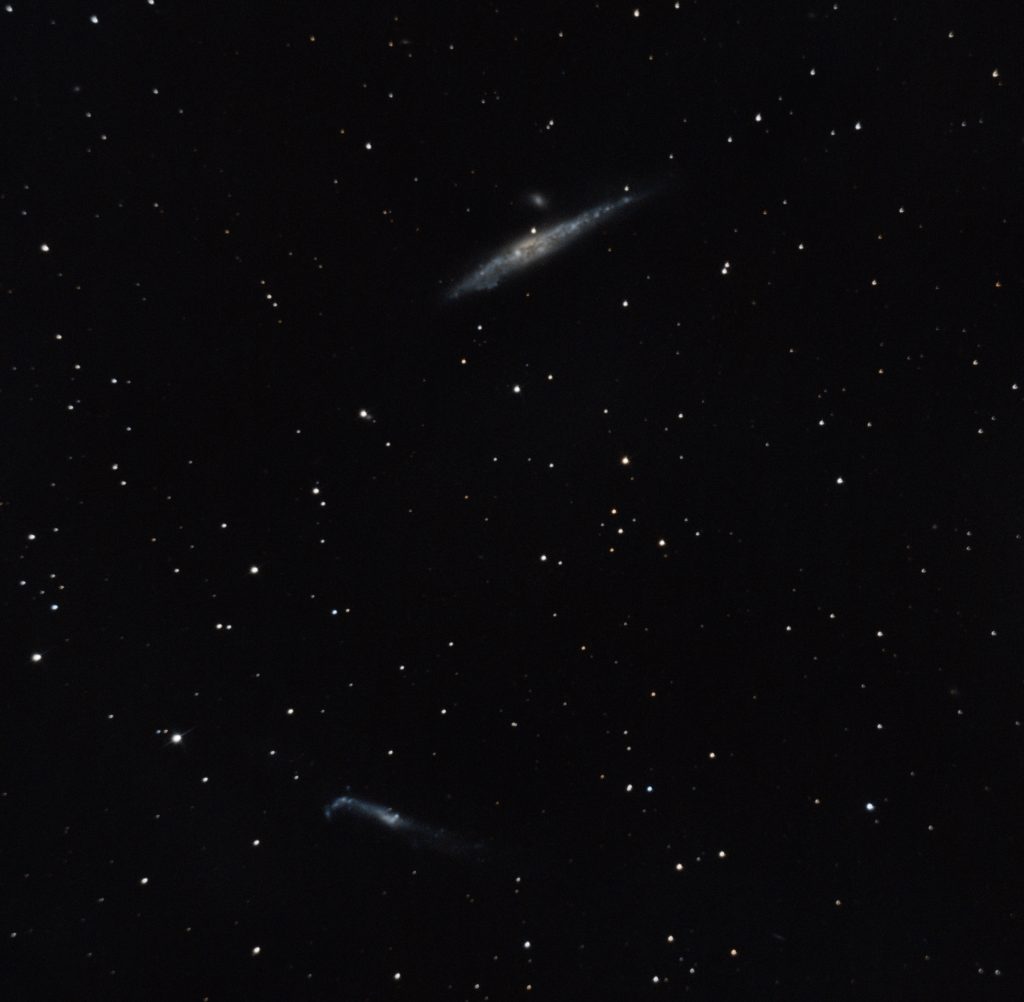
The Leo Triplet
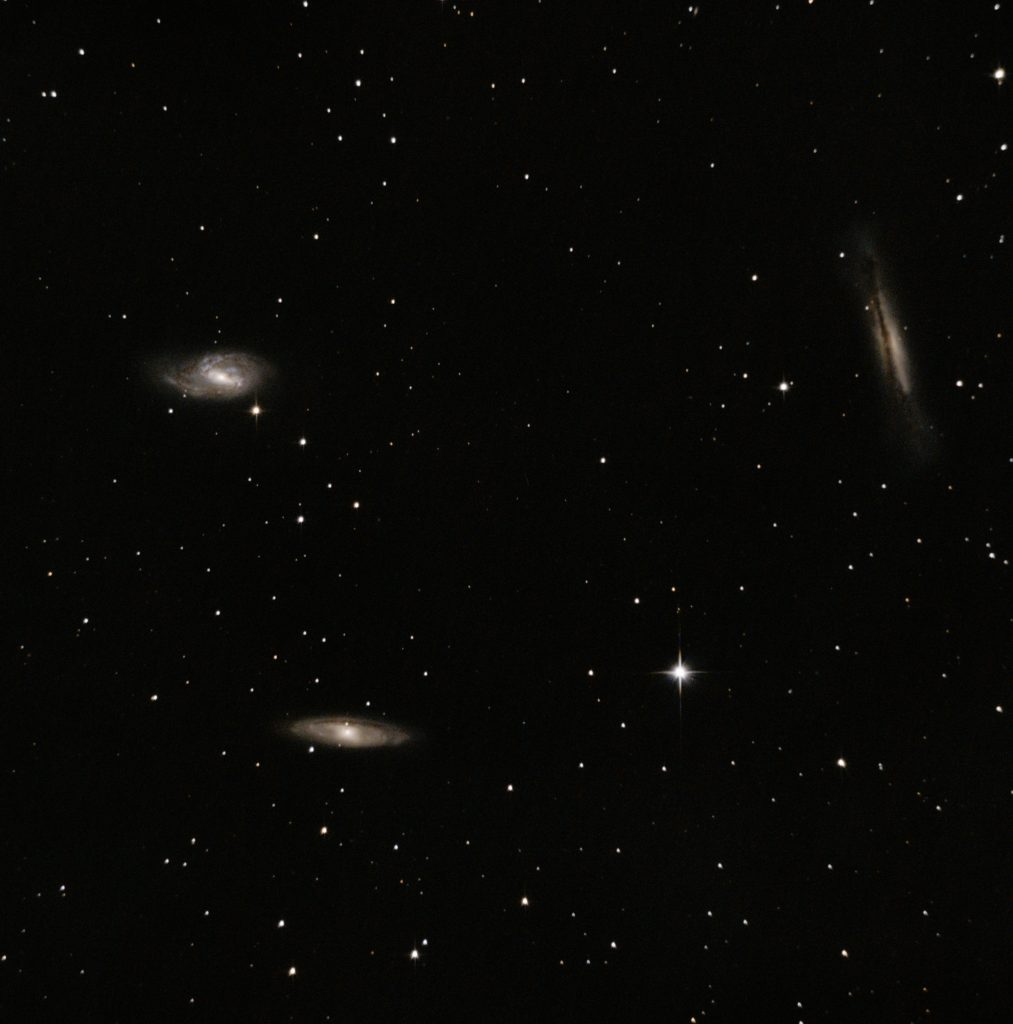
The Whirlpool Galaxy
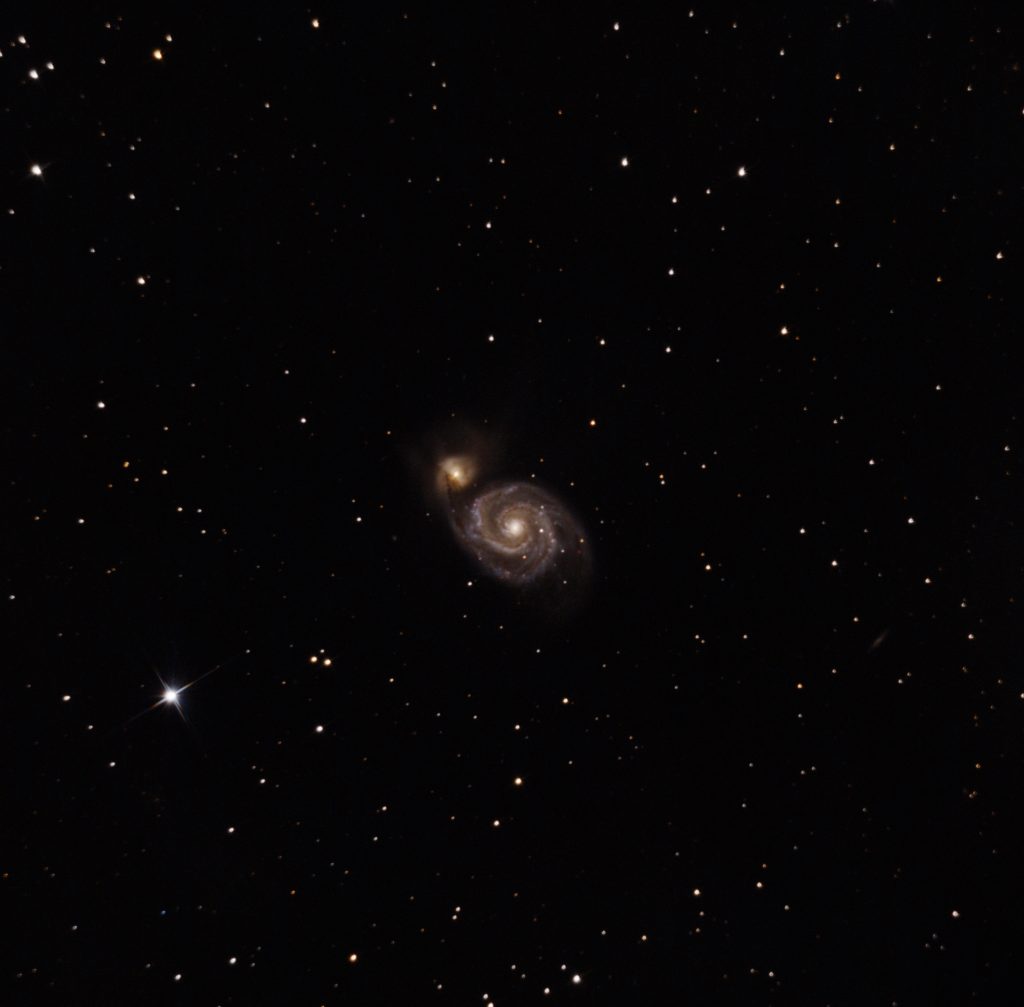
Jupiter & Venus are in conjunction now, next time this happens will be in 2032. Imaging our sister planet is very hard but it’s a good excuse for me to take out the 8 inch dob and go old-school planetary mode.

This globular cluster is traveling above our galactic plane, some 33.000 light years away from earth.
It is estimated to have around half a million stars in it.
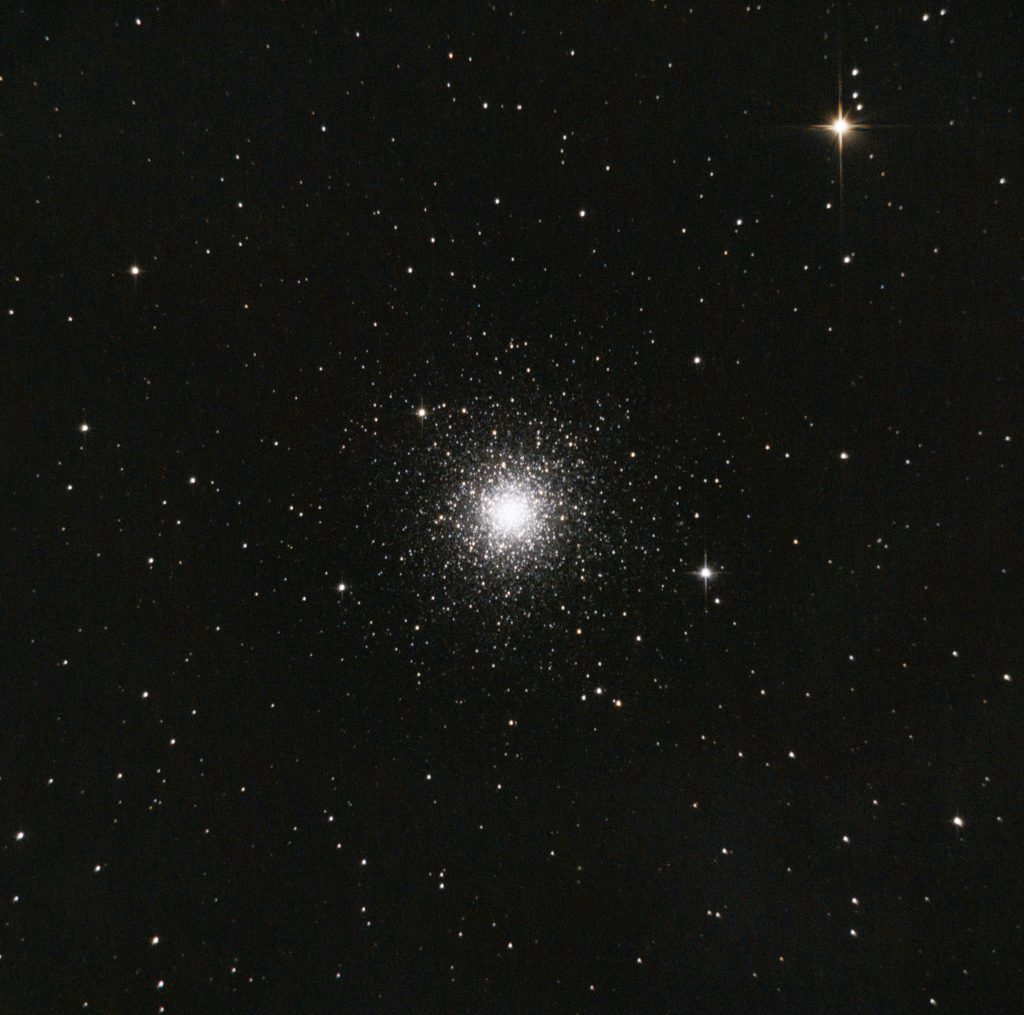
After months of research I decided to go for the ZWO 533 MCP as my final camera for EAA. It took me a while to get everything running and I struggled for two nights with:
I will not share a picture of the final setup because some of it is a bit embarrasing, such as the duct tape I used to stick the ASIAIR to the tripod;
The results for EAA area really good, considering my balancing, polar alignment, leveling and camera settings were all -to say the least- a bit experimental.
I don’t have a coma corrector but I still might try to take some longer exposures in the future.
